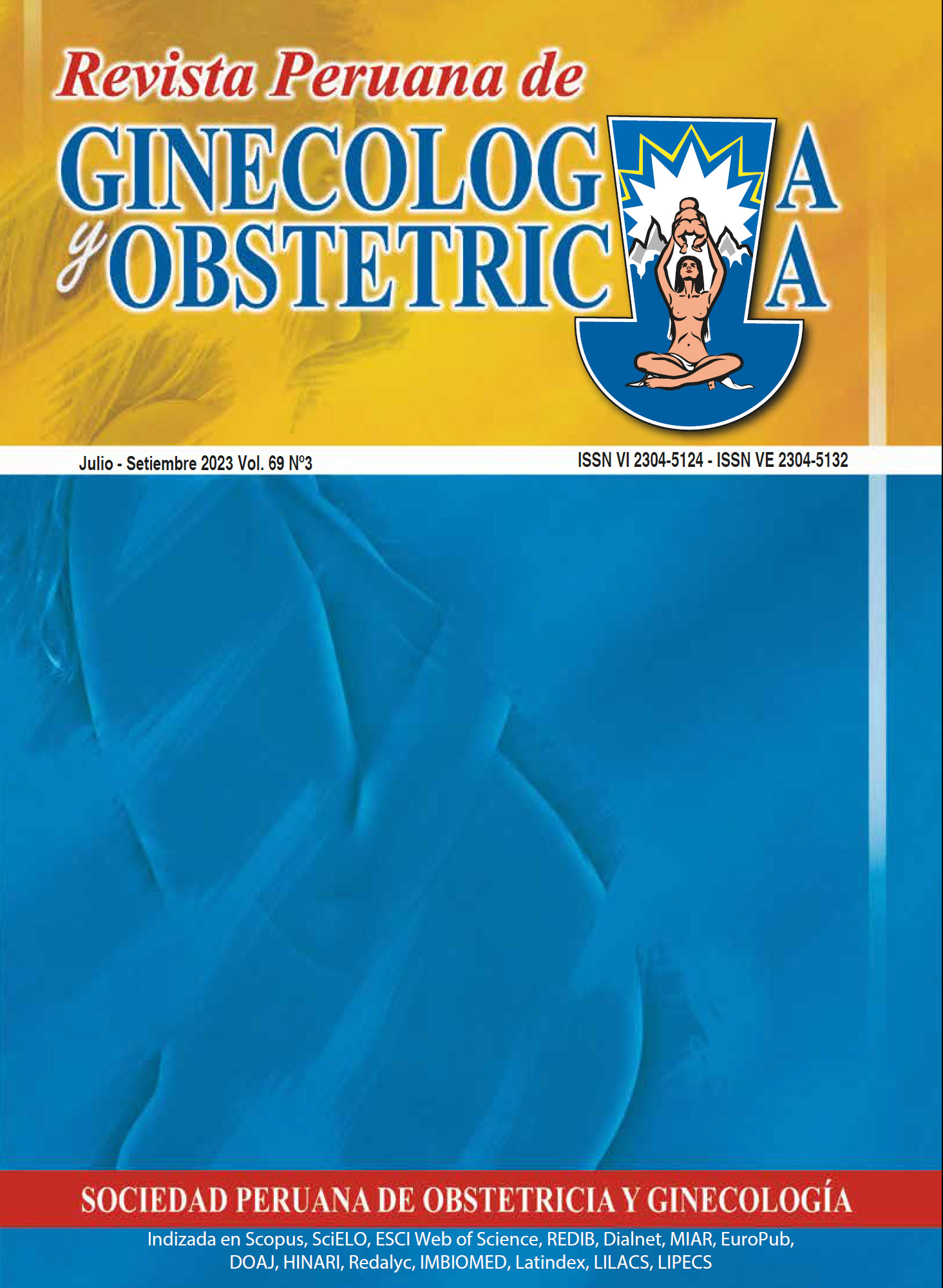Prevalence of Streptococcus agalactiae rectovaginal colonization in pregnant women attended at a second level hospital in Honduras
DOI:
https://doi.org/10.31403/rpgo.v69i2542Keywords:
Streptococcus agalactiae, Neonatal sepsis, Pregnant women, Risk factorsAbstract
Introduction: Streptococcus agalactiae, currently known as group B streptococcus (GBS)
is the main microorganism that colonizes the genitourinary tract in pregnant women,
causing serious consequences in the neonate, such as neonatal sepsis, pneumonia,
and meningitis. Objective: To determine the prevalence of GBS in pregnant women at
the Dr. Mario Catarino Rivas National Hospital in Honduras. Materials and methods:
Descriptive, prospective, cross-sectional study. A total of 143 pregnant women
between 34-40 weeks of gestation attended at the gynecology and obstetrics service
of the Dr. Mario Catarino Rivas National Hospital in Honduras from January 2020
to June 2021 were enrolled. Cultures were developed following the methodology
recommended by the Centers for Disease Control and Prevention and Strepto B
chromID agar was added. Descriptive statistics were used for analysis. Results: The
mean age of the pregnant women was 26 ± 7.4 years. The prevalence of GBS in
the study population was 3.5%, with 5 positive cases. Conclusion: The prevalence of
GBS colonization in pregnant women is variable and may not be associated with risk
factors for colonization, resulting in neonatal and maternal health complications. This
highlights the need for active search for group B Streptococcus in pregnant women.
Downloads
Downloads
Published
Versions
- 2023-10-22 (3)
- 2023-10-16 (2)
- 2023-10-16 (1)
How to Cite
Issue
Section
License
Copyright (c) 2023 César Alas-Pineda, Beatriz M. Raudales, Ana Clemencia Bueso, Belinda Andino-Castro, Digna Sevilla-Rivas, Zila Turcios-Ávila, Dennis Javier Pavón-Varela, Luis Enrique Romero Reyes, Luis Z úñiga-Girón

This work is licensed under a Creative Commons Attribution 4.0 International License.
Esta revista provee acceso libre inmediato a su contenido bajo el principio de que hacer disponible gratuitamente la investigación al publico, lo cual fomenta un mayor intercambio de conocimiento global.















